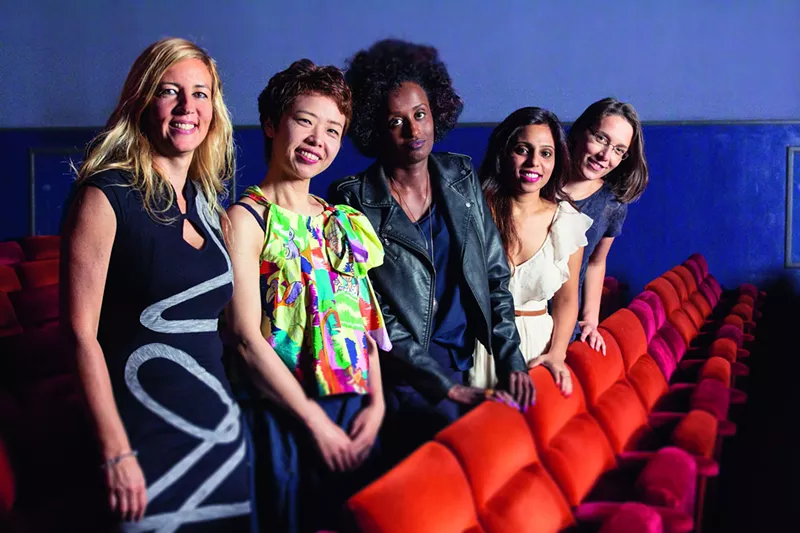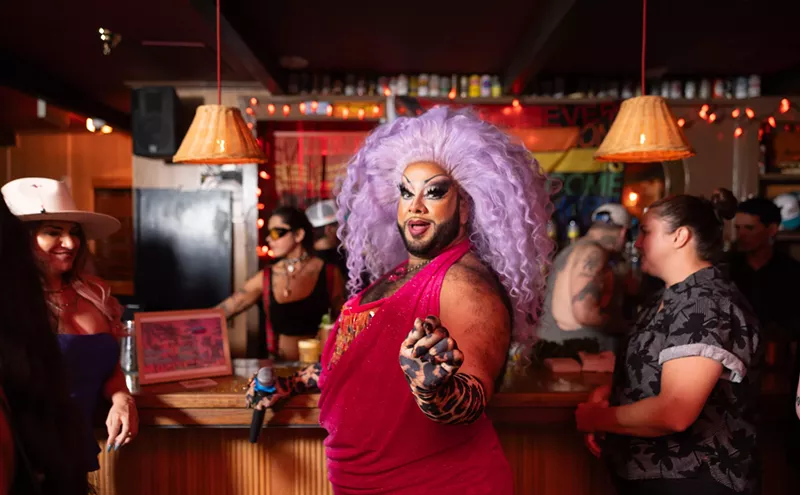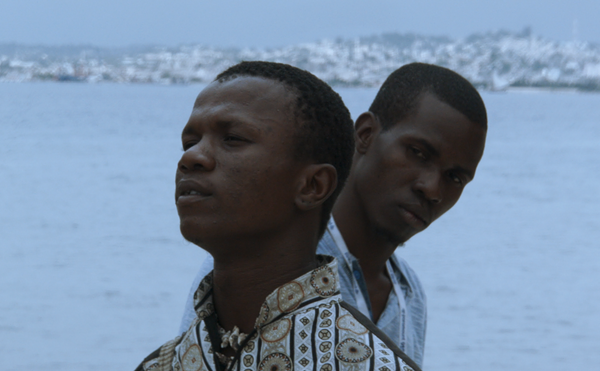For 20 years, Swiss filmmaker Barbara Miller has dedicated her time to producing social justice-oriented projects. For her latest film, #Female Pleasure, the Zurich-based director sought to elevate the voices of women around the world who were persecuted for speaking out against oppression as it pertains to sex or, indeed, sexualized female pleasure.
"I needed to talk to women who were really aware of what it means to talk about these taboo topics: The reaction can be harsh, to say the least,” Miller tells New Times. She'll be in Miami Monday, February 10, to present #Female Pleasure and a subsequent audience Q&A at the Landmark at Merrick Park.
The topic of feminine gratification — or rather, its conspicuous absence from popular discourse — has long been a focus for the director. She earned her law degree in 1998 but soon realized that her drive to enact change might be better served behind a camera than in a courtroom. While traveling the world for her work on films such as Sex on the Internet and Hidden Voices, she learned that for many women, sexuality is more synonymous with obligation, and even pain, than it is with pleasure.
“In the 21st Century, how is this possible?” she asks. She began her research by turning to scripture and poring over the religious texts of the world’s five major religions: Christianity, Judaism, Islam, Hinduism, and Buddhism. She found an overarching truth across these scriptures that alarmed her: “These texts really demonize the female body. They claim that we [women] are the reason for all the bad things in the world.”
Shocked by the continued prevalence and entrenchment of these negative ideas about women, Miller searched for five women from five world religions and cultures who dared to speak up and speak out about their personal experiences of oppression. The only criterion Miller required, knowing the potential consequences that asserting themselves might hold for some of these women, was that they had already inserted themselves into the public sphere.
She found the five women she needed in Deborah Feldman, Leyla Hussein, Rokudenashiko, Doris Wagner, and Vithika Yadav, each of whom has suffered negative repercussions as a result of advocating for female sexual autonomy. Feldman, for example, was born and raised in Brooklyn in an ultraorthodox Jewish family. Married at the age of 17 and pregnant with her son shortly thereafter, Feldman began to feel trapped by her life in the Hasidic community. She eventually left and wrote two bestselling books, Unorthodox and Exodus. Hussein, who was brought up in a Muslim family in London, was genitally mutilated at the age of 7 (despite there being no such mention of this practice in the Quran). Since the birth of her daughter, she has been fighting for the sexual self-determination of Muslim women in African and European countries.
Through the documentary, Miller’s lens enters the worlds of these women and follows their respective paths to personal empowerment. The director believed her subject's stories were emblematic of the universality of codified cultural oppression against women.
“It’s so important to realize that the dogmas that we have are still so vivid; one key element that often we don’t realize is how deep these ideas [about] the inferiorities of women run," she says. "If we talk about rape [in a legal sense], the questions are still blaming the woman: How were you dressed? Were you drinking? And we see this in all cultures. We really need to change this on a global, judicatory level.”
Though the protagonists of #Female Pleasure have largely liberated themselves by creating and using public platforms to educate, emancipate, and galvanize other women, most of them have also been forced, one way or another, to leave their cultural realms or religions in order to win their autonomy. In the documentary, Doris Wagner, a former Catholic nun who experienced sexual assault within the Church, uses the phrase “born again” to describe how she felt upon returning to the secular world. Miller, however, is careful to define her narrative point of view carefully: Rather than rejecting the entire framework of the religions that wrought trauma upon these women, both the director and her subjects take aim at the misuse of power and oppressive dogma of forces that hold women “guilty of having a female body."
Like the movie — whose title is a nod to the global online movement fighting for female empowerment — Miller hopes the documentary will advance the discussion regarding female sexuality and gender equality. Storytelling is a powerful force, and Miller is dedicated to deploying it in order to eradicate the normalized abuse of women.
#Female Pleasure Screening and Q&A. 7 p.m. Monday, February 10, at the Landmark at Merrick Park, 358 San Lorenzo Ave., Coral Gables; 786-574-4116; femalepleasure.org. Tickets cost $15 via landmarktheatres.com.

Audio By Carbonatix
[
{
"name": "GPT - Billboard - Slot Inline - Content - Labeled - No Desktop",
"component": "22004575",
"insertPoint": "2",
"requiredCountToDisplay": "2"
},{
"name": "STN Player - Float - Mobile Only ",
"component": "22595215",
"insertPoint": "2",
"requiredCountToDisplay": "2"
},{
"name": "Editor Picks",
"component": "17482312",
"insertPoint": "4",
"requiredCountToDisplay": "1"
},{
"name": "Inline Links",
"component": "18711090",
"insertPoint": "8th",
"startingPoint": 8,
"requiredCountToDisplay": "7",
"maxInsertions": 25
},{
"name": "GPT - 2x Rectangles Desktop, Tower on Mobile - Labeled",
"component": "23181625",
"insertPoint": "8th",
"startingPoint": 8,
"requiredCountToDisplay": "7",
"maxInsertions": 25
},{
"name": "Inline Links",
"component": "18711090",
"insertPoint": "8th",
"startingPoint": 12,
"requiredCountToDisplay": "11",
"maxInsertions": 25
},{
"name": "GPT - Leaderboard to Tower - Slot Auto-select - Labeled",
"component": "17720761",
"insertPoint": "8th",
"startingPoint": 12,
"requiredCountToDisplay": "11",
"maxInsertions": 25
}
]












